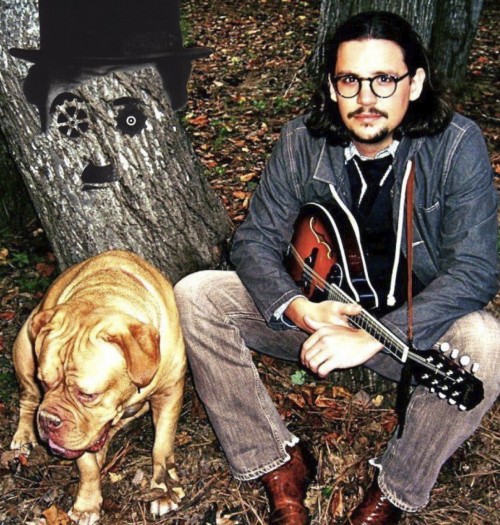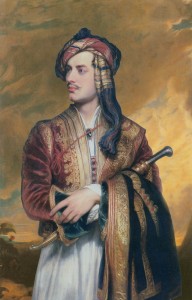Meet Charles Ozburn: His Work, Thoughts on Childe Harold, Etc
***
After I read at Mellow Pages in the Fall I was greeted by a man with a deep voice. I was in a bit of a fog-tunnel, as I usually am after readings, and it took me a while to figure out that this man (Charlie – Charles Ozburn) was speaking about Tiresias: variously male and female, etc. One of the great things, of course, about reading in different places is that you meet new and sometimes great people. Charlie is an example of the latter. And, soon, I found out that Charlie has a real and sustained “thing” for the club-footed Lord Byron’s work. And, in particular, Childe Harold. So, into the late hours that night I Brooklyn hung out with Charlie and other Mellow Pages folk. And then kept in touch with Charlie.
***
And, so, anyways, to follow is Charlie’s take on why Byron and Childe Harold are still highly relevant as well as a couple of samples of Charlie’s novel, A Well-Spun Spoon (of a Lark, a Lily & a Loon), where he attempts to “reflect the contradicting faces of Childe Harold against one another to, in Venus Effect, split the Byronic Hero into two (a he and, of course, a she)”
***
RK: I’ve seen the words “Childe Harold” in print a few times, I guess, but I don’t believe I’d ever heard them in conversation before I met you. And I know Byron’s work, especially “Childe Harold,” is important to you. But can you tell us please why it’s worth reading?? (what could a reader get out of it that he/she can’t get anywhere else)
CO: There exist some very basic assumptions of the human condition called human emotion, which–as expressed within an artistic medium, a plot line or even day-to-day interaction–may seem simplistic today. However, without Childe, such assumptions do not exist. For from Byron’s ink was born the founding strokes of the Modern Man, but nonetheless it is ink so far ingrained within our beings that it is often taken for granted today if noticed at all. Childe’s mark, like the faded mirror you see, is as ubiquitous as is felt; as important as is faded as is masked as is shrouded dark; more heard in the echoes of our subconscious than is shouted aloud; certainly more misunderstood as a literary key word taught to the too young an age to be realized any substantive credit due. For everyone knows of Lord Byron and, of course, every Dick or Jane, who ever paid a bit of attention in high school English has heard, if only in passing, the term ‘Byronic hero’ – but, given you are not the first person–much less poet–who has with earnestness admitted to an honest ignorance of Byron’s legacy, I suppose it is safe to say today that the roots, flowers, fruits and weeds born of Byron and his work have grown so tall, so far, so wide, so plump, so beautifully wretched, so wretchedly right, so obviously plain that the shadowing stature of their booming bloom have all but sheathed the very soil and seed from which beneath same sprouted.
Childe Harold is the lightly veiled pen-to-page fictive form of young Lord Byron written contemporaneously in reflection along his own path from disillusioned playboy gamboling in retreat of war about the exotic pleasures fields of faraway fanciful worlds to finding therein the world out there lay so much more than perceiving one’s own superiority and self-serving one’s self righteousness of pity in vain; because so many of us today with our world and war weary eyes and smug cachets find ourselves in his same embarkation shoes, entrapped in a claustrophobic cynicism our own and gamboling about lost in this newly found unfamiliar land where all are free to know all; because not only did Lord Byron embody all things Rock Star, but because he so clearly invented the role; because he was Andy Warhol 100 years before Campbell canned its first soup; because he was Lou Reed and Patti, Janice and Jerry, and Richard. Levon and Rick 200 years before Chelsea changed the game or Monterrey poised itself to pop! because he was the most famous READ MORE >


